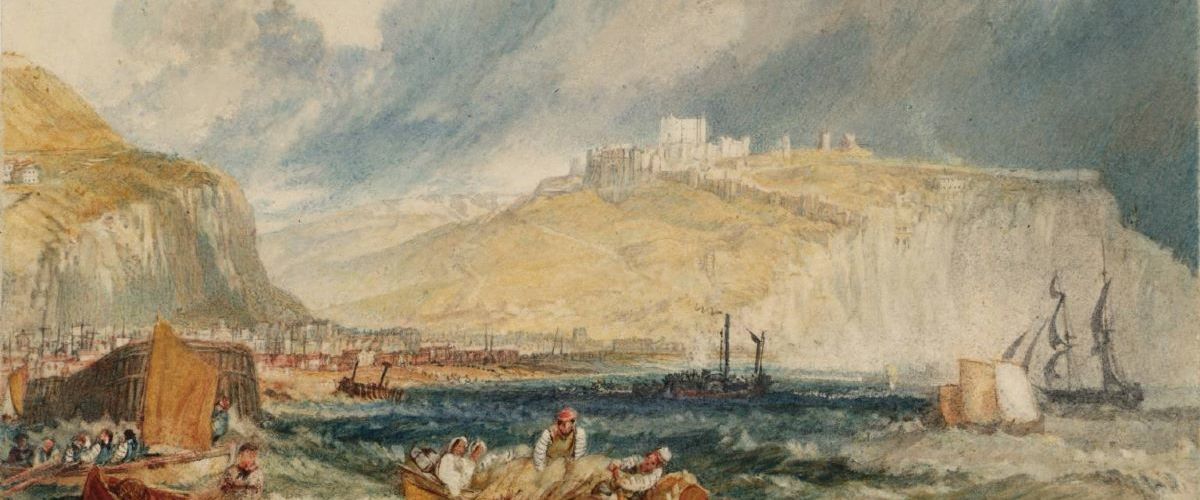

The Symbolism of the Dover Cliffs
About 30 years ago, my wife and I were returning from France. We drove on board the car ferry at Dunkirk; were summoned below as it approached the English coastline; and watched, through the open bow doors of the half empty car deck, as dawn broke over the cliffs of Dover. It was hauntingly memorable.
Dover Cliffs are a potent symbol, as we know from last week’s VE Day celebrations. But their significance extends beyond Dame Vera’s blue birds. Alba is the Latin for white: down the years these cliffs have represented hope, purity, resistance, and survival. To generations of Britons, they symbolise our island of Albion.
In Shakespeare’s King Lear, Gloucester, his eyes torn out by his family, makes towards Dover, where he encounters his loyal son Edgar, disguised. Edgar allows the despairing Gloucester to believe he is throwing himself off the cliff; but then, impersonating another person at the “bottom” of the cliff, Edgar persuades Gloucester that he has survived. “Why I do trifle thus with his despair” Edgar explains, “is done to cure it.”
Later in life Shakespeare rendered the text of King Lear more pessimistic. The end is further away than we ever consider it to be. “Is this the promised end?” asks Kent, in hope; but there are several more vicious disappointments to come. “Oh Gods,” Edgar learns, “Who is’t can say I am at the worst.”
Now if you have you been alongside anyone who is very ill, you’re likely to realise what Edgar means. You fear the worst, and that soon; – or you hope for some improvement and imagine that soon too. But suffering is self-prolonging, one episode elongating into another.
When in the holiday Mr Sparkes invited me to write a 'Thought of the Day' I deliberately chose the week before Leave Out. We would surely be returning in two weeks time. The theme, uplifting, would be revisitation. The current crisis reminds us never to count on better things happening soon.
It was a beautiful view through those bow doors; but only a few years later, the open bow doors on a sister ship, the Herald of Free Enterprise, resulted not in a glimpse of beauty, but in an international catastrophe, the death of 193 passengers and crew.
Old Wykehamist Matthew Arnold went to Dover on his honeymoon, and there wrote one of his most famous poems, Dover Beach. The world lies before Arnold and his wife like a land of dreams; but in fact the narrator hears an “old eternal sadness” in the waves, made worse by the melancholy roar of the withdrawing sea of faith.
At Winchester, Arnold had burned his hand badly in a chemistry lesson. Science was not his thing. A bit like modern medics, Arnold concludes that “we are here as on a darkling plain, … where ignorant armies clash by night.” All he and his newly wed can do is summarised in less than a line: “Ah love, let us be true to one another.”
The extraordinary artist JMW Turner returned to Dover many times, as the watercolour above reminds us (Dover, 1825, Tate Collection). Expectations, conditions and realities change. All too often, just when we think things cannot get worse, that’s exactly what they do: the bluebirds desert the cliffs. In these unprecedented times, we need to be prepared for disappointment. To put it in modernity-speak, we need to be resilient.
Times are hard. Times are disappointing. But we need to abide by our principles. Some things have to be looked at twice. We all need to appreciate that though events alter, principles don’t. Sooner or later we will be back, and I look forward to it.

 Head back to stories
Head back to stories